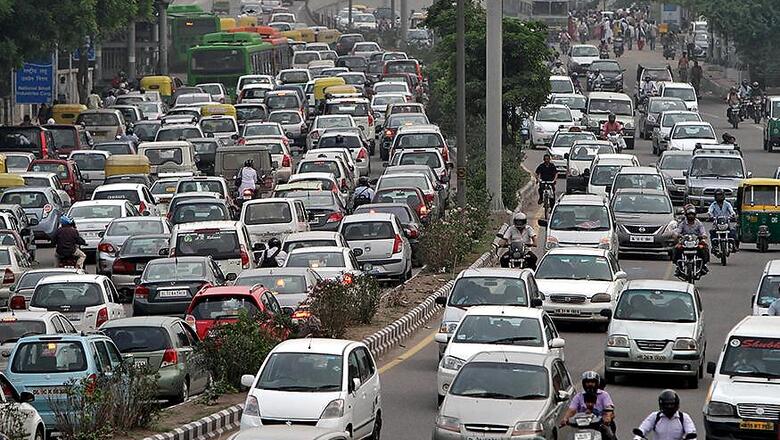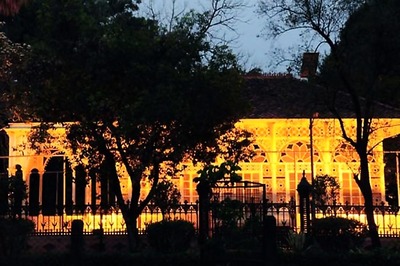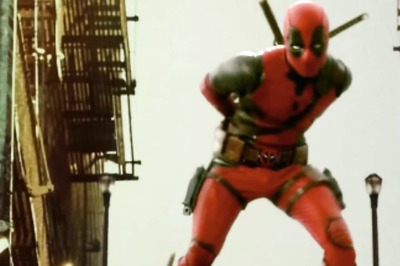
views
New Delhi: No Bharat Stage-IV vehicle would be sold or registered in India from April 1, 2020, the Supreme Court ruled on Wednesday, saying any extension of time in introducing the new emission norms would adversely impact the health of citizens as the pollution has reached an "alarming and critical" level.
Bharat stage (BS) emission norms are standards instituted by the government to regulate output of air pollutants from motor vehicles. The BS IV norms have been enforced across the country since April 2017.
In 2016, the Centre had announced the country would skip the BS-V norms altogether and adopt BS-VI norms by 2020. The apex court said there cannot be any compromise on the health of citizens and this has to take precedence over the "greed" of few automobile manufacturers who unfortunately want to stretch the timeline to make a "little more money".
Noting that India has the "dubious distinction" of having 15 out of the 20 most polluted cities in the world, a bench headed by Justice Madan B Lokur said the effect of pollution on the environment and health was so huge that it cannot be compensated in the marginal extra profits that manufacturers might make.
"Therefore, if there is a conflict between health and wealth, obviously, health will have to be given precedence," said the bench, which also comprised Justices S A Nazeer and Deepak Gupta.
"We are dealing here with a situation where children and unborn children suffer from pollution and issues of inter-generational equity are involved," the bench said and noted there was more than sufficient time for manufacturers to make BS-VI compliant vehicles.
"They (manufacturers) already have the technology to do so. The automobile industry must show the will, responsibility and urgency in this regard," the court said in its order while deciding if BS-IV compliant vehicles should be permitted to be sold in India after March 31, 2020.
The top court termed as "very vague" a sub-rule inserted in the Central Motor Vehicle Rules, 1989 by the government as per which grace period of three and six months respectively were given for sale of BS-VI compliant vehicles manufactured before April 1, 2020.
As per the sub-rule, time till June 30, 2020 was given to automobile manufacturers to sell their BS-IV compliant four-wheelers manufactured till March 31, 2020.
Similarly, according to the sub-rule, grace period till September 30, 2020 was given for sale of BS-IV compliant heavy transport vehicles manufactured till March 31, 2020. "This rule, in our view, is violative of Article 21 of the Constitution (protection of life and personal liberty) in as much as it extends time for registration of vehicles beyond March 31, 2020 and must be accordingly read down," the bench said.
"Any extension of time in introducing the new norms which is not absolutely necessary adversely impacts the health of the citizens and is, therefore, violative of Article 21 of the Constitution of India," it said.
The apex court made it clear that the sub-rule shall be interpreted and understood to read that no motor vehicle conforming to BS-IV norm shall be sold or registered in the entire country with effect from April 1, 2020.
It noted that Europe had introduced Euro-VI standards way back in 2015 and India was already many years behind. "We cannot afford to fall back further even by a single day. The need of the hour is to move to a cleaner fuel as early as possible," it said.
The court said that the Centre was pro-active in spending huge amounts of money to move to BS-VI technology but the automobile industry was coming up with a "variety of untenable excuses" just to delay its introduction by a few months.
It said that some of the manufacturers were not willing to comply with the March 31, 2020 deadline not because they do not have the technology, but because the use of technology would lead to increase in cost of vehicles which might lead to reduction in sales and ultimately their profit.
"There can be no compromise with the health of the citizens and if one has to choose between health and wealth, keeping in view the expanded scope of Article 21 of the Constitution, health of the teeming millions of this country will have to take precedence over the greed of a few automobile manufacturers," it said, adding, "The automobile manufacturers must behave responsibly."
"The right to live in an environment free from smoke and pollution follows from the 'quality' of life which is an inherent part of Article 21 of the Constitution," it said.
"When we are concerned with the health of not one citizen but the entire citizenry including the future citizens of the country, the larger public interest has to outweigh the much smaller pecuniary interest of the industry, in this case the automobile industry, especially when the entire wherewithal to introduce the cleaner technology exists," it said.
The bench also noted that the sale of vehicles was rising exponentially and even a day's delay in enforcing BS-VI norms was going to harm the health of the people. "Do we as a society or as manufacturers of automobiles have a right to manufacture more polluting vehicles when we have the technology to manufacture less polluting vehicles? The answer is obviously a big NO," the bench said.
"The amount spent on countering the ills of pollution such as polluted air, damaged lungs and the cost of health care far outweigh the profits earned," it said.


















Comments
0 comment